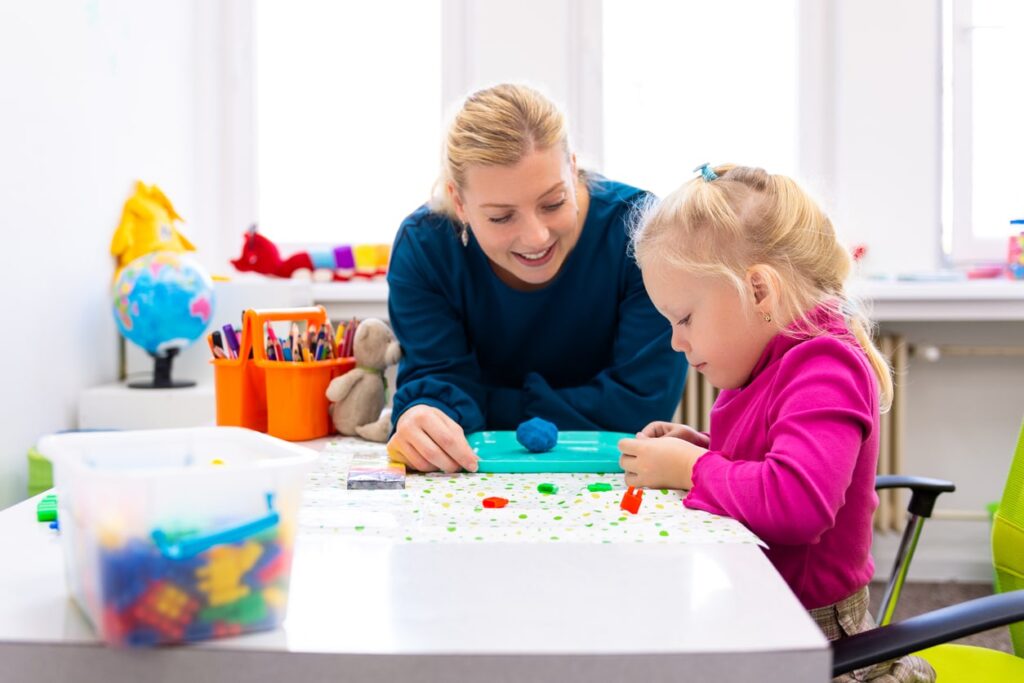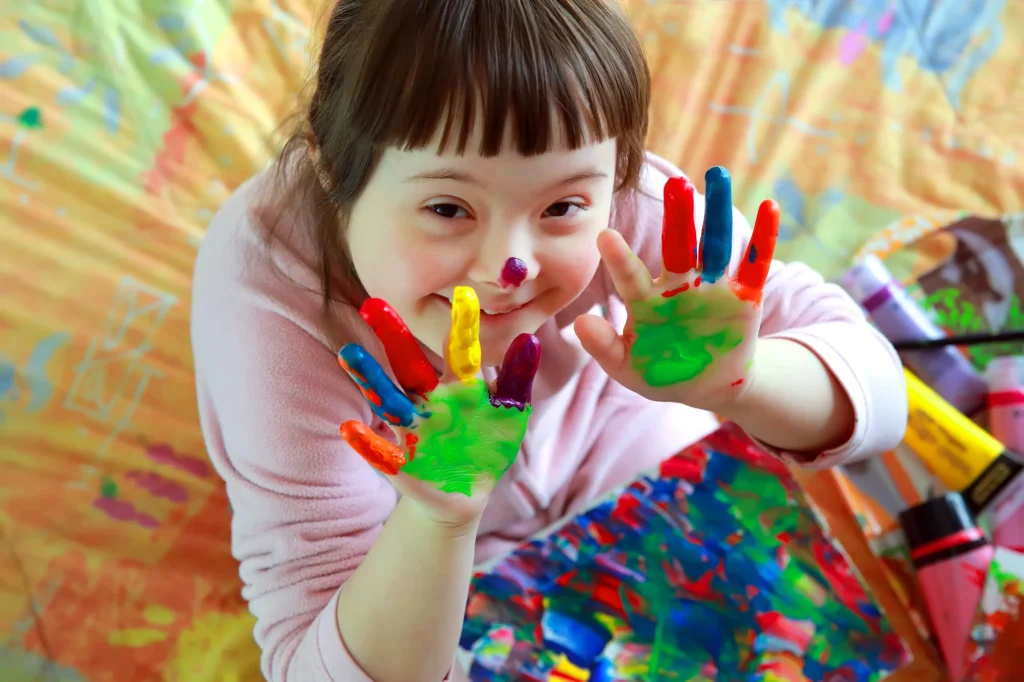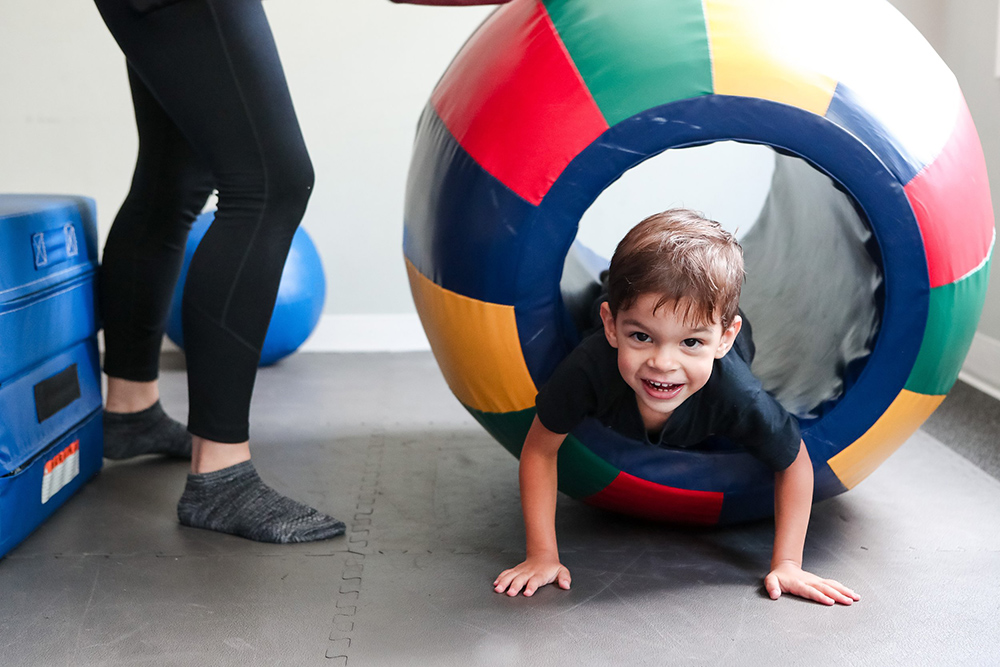A paediatric occupational therapist is a registered allied health professional who helps children develop essential life skills and overcome challenges in their daily activities. All occupational therapists must maintain registration with the AHPRA (Australian Health Practitioner Regulation Agency) and adhere to professional standards. Through evidence-based interventions, these skilled practitioners work with children of all ages to enhance their independence, confidence, and overall quality of life.
Understanding Paediatric Occupational Therapy
Paediatric occupational therapy represents a vital bridge between a child’s abilities and potential for growth and independence. This specialised field focuses on helping children master important developmental skills through engaging, purposeful interventions. What makes this approach particularly effective is its holistic nature – considering physical abilities and cognitive, emotional, and social aspects of a child’s life.
Core Focus Areas
The scope of paediatric occupational therapy encompasses several crucial developmental areas:
Physical Development
- Fine motor skills for writing and classroom activities
- Gross motor coordination for play and sports
- Sensory processing and integration
- Hand-eye coordination
School Readiness and Executive Functioning
- Organisational abilities for daily routines
- Task initiation and completion
- Working memory for learning
- Self-regulation strategies
- Time management skills
- Planning and sequencing abilities
Social and Emotional Growth
- Peer interaction skills
- Emotional regulation strategies
- Self-advocacy development
- Communication abilities
Assessment and Evaluation Process
Occupational therapists use standardised, evidence-based assessment tools, including:
- Vineland – 3 Domain / Comprehensive (Parent teacher form)
- Movement ABC-2 for motor skills assessment
- Sensory Processing Measure (SPM) for sensory evaluation
- Beery-Buktenica Test for visual-motor integration
- COPM for collaborative goal-setting
These validated tools ensure objective measurement of progress and inform therapy planning.
Practical Life Skills Development
Skills development is structured according to age and developmental stages:
Early Years (0-5 years)
- Self-care routines
- Gross motor skills
- Play-based learning
- Social interaction
- Early literacy and numeracy foundations
- Pre writing skills
Primary Years
- Classroom participation skills
- Handwriting and digital literacy
- Organisation of materials
- Social skills development
Secondary Years
- Study skills and organisation
- Time management
- Independent living skills
- Transition planning
Inclusive Practice
Our approach recognises and celebrates diversity. We are committed to providing culturally safe and appropriate services for all families, with particular consideration for Aboriginal and Torres Strait Islander children and families, including:
- Respecting traditional practices
- Incorporating cultural perspectives
- Community collaboration
- Flexible service delivery
- LGBTQI+
Funding and Support Options
Families can access occupational therapy through various funding pathways:
- Assessment and therapy sessions
- Equipment and aids
- Home modifications
- Capacity building supports
Additional Funding Options
Medicare Chronic Disease Management plans
Private health insurance
Department of Veterans Affairs
State-based programs
Working with Families and Schools
Success in occupational therapy depends on strong partnerships between therapists, families, and educational teams. Therapists provide guidance to:
- Implement effective strategies
- Modify environments for success
- Track progress
- Adjust approaches based on outcomes
Benefits and Expected Outcomes
The impact of occupational therapy can be significant:
Short-term Outcomes
- Improved classroom participation
- Better self-regulation and emotional regulation
- Enhanced daily living skills
- Better social interactions
- Developed motor skills (fine and gross motor)
- Handwriting and typing
Long-term Development
Increased independence
Stronger academic performance
Better self-advocacy skills
Enhanced life skills competency
Take the First Step Towards Your Child’s Development
Your child’s journey to independence and confidence begins with a single step. Be sure to give them the support they need to thrive. Our experienced team of registered occupational therapists at Educare is ready to help your child reach their full potential through personalised care and evidence-based interventions. Contact Educare to book your initial consultation and begin your family’s journey with pediatric occupational therapy.
FAQs
What does a behaviour support therapist do?
A behaviour support therapist helps individuals manage and reduce challenging behaviours by identifying triggers, creating tailored strategies, and providing support to individuals and their families. They focus on building skills and promoting positive behaviour changes to improve overall well-being and quality of life.
Who can benefit from behaviour support therapy?
Behaviour support therapy is beneficial for children, teenagers, and adults experiencing challenging behaviours caused by mental health issues, developmental conditions, or communication difficulties. It supports individuals with conditions like autism, ADHD, or sensory processing disorders, as well as their families.
How does a behaviour support therapist address challenging behaviours?
Therapists conduct functional behaviour assessments to understand the causes of behaviours. They develop personalised intervention plans and use evidence-based strategies like positive reinforcement, environmental modifications, and skill-building exercises to manage behaviours effectively.
What types of behaviours can behaviour support therapy help with?
Behaviour support therapy addresses behaviours such as aggression, self-injury, social withdrawal, and disruptive actions. These behaviours often arise from communication difficulties, sensory sensitivities, or anxiety, which therapists help to manage through targeted strategies.
How long does it take to see results from behaviour support therapy?
The timeline varies depending on the individual and the complexity of the behaviours. While some improvements can be seen in weeks, long-term positive outcomes often require consistent therapy over several months, coupled with collaboration between therapists and families.
What methods do behaviour support therapists use?
Therapists use evidence-based methods like functional behaviour assessments, positive reinforcement, skill-building exercises, and environmental adjustments. These strategies are tailored to each individual’s unique needs to ensure effective and sustainable behaviour management.
How can families support behaviour support therapy at home?
Families play a crucial role in reinforcing therapy strategies. They can collaborate with therapists to learn specific techniques, ensure consistent application across settings, and provide a supportive and structured environment to encourage positive changes.
How do I find a qualified behaviour support therapist?
To find a qualified behaviour support therapist, look for professionals with advanced training in behaviour analysis and therapy, strong experience, and relevant qualifications. Contacting reputable clinics or searching within your local area can help you find a specialist who meets your needs.
Want to learn more about how behaviour support therapy can work for you or your loved one?
Reach out today to connect with a behaviour support therapist at EDUCARE Specialist Services dedicated to helping you thrive.




